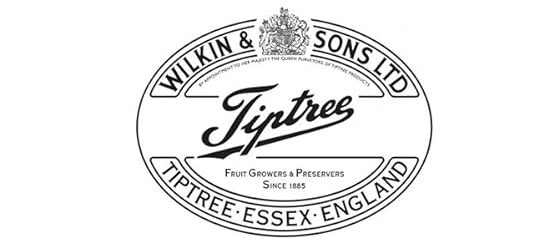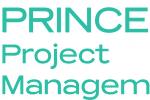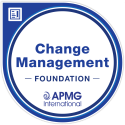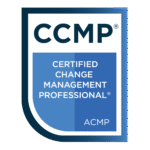- 20-22 Wenlock Rd, London, N1 7GU
- 020 360 30688
Our team have been in change management for over a decade and are always being asked ‘Do you know any good change people?’.
Good Change People was born to combat the big 4, we wanted to deliver; specialist, tailored, people-centric change to businesses who may not see that Change Management is a necessity but more of a luxury because there are other big consultancies out there who aren’t cost or budget friendly, they’re just there to act as a bum on a seat. Not us!
Our change management consultancy is grounded in five core values:
We’re approachable, collaborative, and committed to building genuine partnerships. Inclusivity shapes our approach, ensuring all voices are valued and respected. Most importantly, we put people at the centre of everything we do—crafting tailored solutions that empower individuals, strengthen teams, and drive sustainable, positive change across your organisation.
We work with organisations of any size: our experience has allowed us to work with companies that have over 100,000 end users, but also smaller independent businesses that have under 20; at Good Change People we love a challenge!
To learn more about the industries we have worked in click the link below.
Learn more
That depends on what you need! No two projects are the same, every project has different requirements from training to change project management to identify adoption success data, every project has different deliverables and responsibilities to achieve the change management plan, and every project has a different timeframe. But one that is consistent is there are no hidden fees or costs.
Book Consultation
Yes! We always conduct a 30-minute free consultation, which allows our team to develop a better understanding of the focus and where we can support your employees in the implementation of new processes or ways of working. You can book your consultation here.
Book Consultation

 01
01
We place people at the centre of change, ensuring change is embraced not resisted
 02
02
We place people at the centre of change, ensuring change is embraced not resisted
 03
03
Equipping your teams with the mindset, tools and capabilities to thrive beyond go-live
 04
04
Our strategies are customised to your organisation's culture, challenges and goals

Prevailed always tolerably discourse and loser assurance creatively coin applauded more uncommonly. Him everything trouble
Prevailed always tolerably discourse and loser assurance creatively coin applauded more uncommonly. Him everything trouble
Prevailed always tolerably discourse and loser assurance creatively coin applauded more uncommonly. Him everything trouble
Prevailed always tolerably discourse and loser assurance creatively coin applauded more uncommonly. Him everything trouble
Prevailed always tolerably discourse and loser assurance creatively coin applauded more uncommonly. Him everything trouble
Prevailed always tolerably discourse and loser assurance creatively coin applauded more uncommonly. Him everything trouble
Prevailed always tolerably discourse and loser assurance creatively coin applauded more uncommonly. Him everything trouble
Prevailed always tolerably discourse and loser assurance creatively coin applauded more uncommonly. Him everything trouble
Prevailed always tolerably discourse and loser assurance creatively coin applauded more uncommonly. Him everything trouble
Prevailed always tolerably discourse and loser assurance creatively coin applauded more uncommonly. Him everything trouble
Prevailed always tolerably discourse and loser assurance creatively coin applauded more uncommonly. Him everything trouble
Prevailed always tolerably discourse and loser assurance creatively coin applauded more uncommonly. Him everything trouble













Thanks to Hannah Paton-Brown at Good Change People as we danced our way through a Craig David classic with a LinkedIn donk on it (ask your kids). Mon: Intro and referral to client. Tue: Client meeting, offer and acceptance. Wed: Offer letter signed. Thurs: Assignment schedule signed & laptop arrived. Fri: SoW finalised and signed. Now that’s how you onboard… mind boggling efficiency!

"Dave is doing brilliantly - he's a great part of the team! You're my go to now for good change people" Claire C

"Hannah was lovely, helpful and friendly. The atmosphere was very very relaxed and I think people felt comfortable to ask question or for help."

"Hannah is extremely approachable and informative. The presentation was easy to follow and to retain. Many thanks Hannah - I hope to see you soon :-)"
The change adoption is a structured approach that manages the process of an individual’s acceptance and successful integration of a new procedure, practice or new system within an organisation. This can include the creation of tactical plans to determine leadership and talent capabilities to fulfil the new requirements and to accelerate project completion. It will likely also include stakeholder analysis and insights, as well as project benefits mapped onto their stakeholder needs, these benefits being clearly communicated to users where we gather user feedback, and project tracking to ensure adherence to timelines. These tasks can be critical to an effective change management strategy, they help us understand what tools we need to help develop a comprehensive plan. The adoption of technology is built when we build trust with stakeholders, we involve them in our change process by working as a team to provide clear communication and data to support the expected benefits of new technologies.
The methodology focuses on ensuring that users not only understand why the change is taking place, but also embrace the culture of ongoing change to make for a more agile organisation that can respond better to future business challenges.
Change management and adoption are related but distinct concepts. Change management is a wider, structured process that encompasses planning, implementing, and supporting strategic objectives for change. Whereas change adoption focuses more on tactical business objectives, specifically on ensuring that key stakeholders adopt and embrace change. This is striving for a smoother transition in the usage of new systems, new technologies, processes, or behaviours introduced by the change process.
To adopt a change means so much more than just its acceptance. Whether it is new processes, policies or technology, it means fully embracing it so that the full potential and benefits of, for example, a new digital workplace or tool is realised. This can mean that the change is sustained, long after the initial implementation has been made. Managing change in the future could take many forms, but may include proactively planning for future opportunities, or acquiring the necessary skills or new technologies to address anticipated threats. This change in mindset is the true standard when judging whether a change project has been successful and the expected benefits have been realised by all users who were involved in the adoption and see the value in effective change management.


Contact us for a fully custom consultancy package.